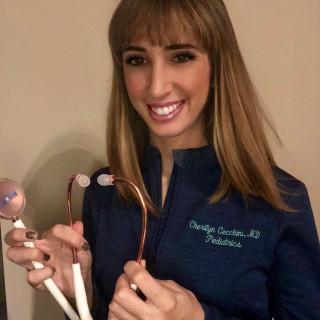 There was a tenseness in the air that I had trouble ignoring. I could feel my shoulders stiffening as I took a deep breath and prepared myself for what I anticipated would happen next. As a white, privileged older male attending physician, he knew that he could say whatever he wanted to without any sort of ramification. I was the senior resident when he looked at me and told me that if I wanted to remain an ignorant female doctor, then I wouldn’t take his recommendation. He continued to rant about how his notions were correct and how it would be foolish not to do exactly as he said.
There was a tenseness in the air that I had trouble ignoring. I could feel my shoulders stiffening as I took a deep breath and prepared myself for what I anticipated would happen next. As a white, privileged older male attending physician, he knew that he could say whatever he wanted to without any sort of ramification. I was the senior resident when he looked at me and told me that if I wanted to remain an ignorant female doctor, then I wouldn’t take his recommendation. He continued to rant about how his notions were correct and how it would be foolish not to do exactly as he said.
He stood in our team room with all females surrounding him. He used ugly language to describe my female attending in her absence. I was extremely uncomfortable, but what could I do? I wasn’t able to do anything in the moment because of the inevitable backlash I would have faced as a trainee. I am choosing to finally speak out about this moment in an effort to draw attention to the gender discrimination that remains rooted in medicine.
During medical school, there was a long hallway in one of the hospitals that I rotated in that was lined with portraits honoring top physicians. We used to joke that it was the “wall of white men” because it was just that — not a single woman was represented in that hallway. Yes, medical school graduates are increasingly female, but there is still a huge gap in representation when you begin examining the top of the ranks. There is also a very large gap when analyzing specialties, including Orthopedic Surgery, Neurological Surgery, Thoracic Surgery, Otolaryngology, and Plastic Surgery. Looking ahead, more than 60 percent of medical residents in each of these specialties or subspecialties is comprised of men.
Once when I was scrubbed in to a Gynecological Oncology case in the operating room, the very pregnant resident working alongside me whispered that she was leaking fluid. I urged her to break scrub immediately and expected her to rip off her garb and seek medical attention. To my disbelief, she performed the entire surgery and never even let her much older, male attending know that she was dripping small amounts of what could have been blood throughout the entirety of the case. She later explained to me that she had heard stories about another female, pregnant resident whose water had broken during a case. That resident was instructed to complete the operation by the same male attending overseeing our case. Given this, she was too afraid to speak up and essentially ignored her own health concerns in order to maintain a spotless reputation with this well-respected male attending. I remain in disbelief to this day.
These personal stories just begin to scratch the surface of the very real and hurtful discrimination that female trainees and women physicians face in the health care setting. In addition to this, there is a still a large pay gap annually between male and female physicians. In 2013, JAMA Internal Medicine reported an absolute annual pay gap of $51,315 to be exact. More recently, the Doximity Compensation Report revealed the gap to be below six figures for the first time in 2018, but there is still much to do. Although some point to the differences in specialty compensation, Dr. Sareh Parangi, a professor of surgery at Harvard Medical School and the president of the Association of Womens Surgeons, made a very important point in saying, “More women are choosing to become pediatricians than are choosing to become neurosurgeons, that’s true. But the gap persists within specialty, too.” Who is to say that more women wouldn’t become neurosurgeons if that specialty were more female-friendly and offered greater career opportunities for females in general?
As women, we need to start sharing our stories and revealing our experiences because I trust they are riddled with gender discrimination. In health care, we like to sugar-coat a lot of these very real issues. It’s my opinion that this needs to end. We need to stop protecting men in medicine. We need to stop telling female medical students that things have changed so much that they won’t face any degree of gender discrimination if they pursue Orthopedic Surgery or some other surgical specialty that is notoriously dominated by men. Women still face barriers and it is up to us to help break them down or prepare other women to overcome them until they no longer exist.
Together, we might be able to force change and finally bring to light the fact that gender discrimination still very much exists and needs to be handled head-on. Although the most recent 2019 Physician Compensation Report by Doximity showed some progress for female physicians as far as pay, there is still a very long way to go. Women physicians deserve equal pay and equal respect to male counterparts. We must continue to draw attention to this in order to close the gap, and eliminate gender discrimination once and for all.
Dr. Cherilyn Cecchini is a pediatrician and a 2018–2019 Doximity Author.
Image by Studio_G / Shutterstock







